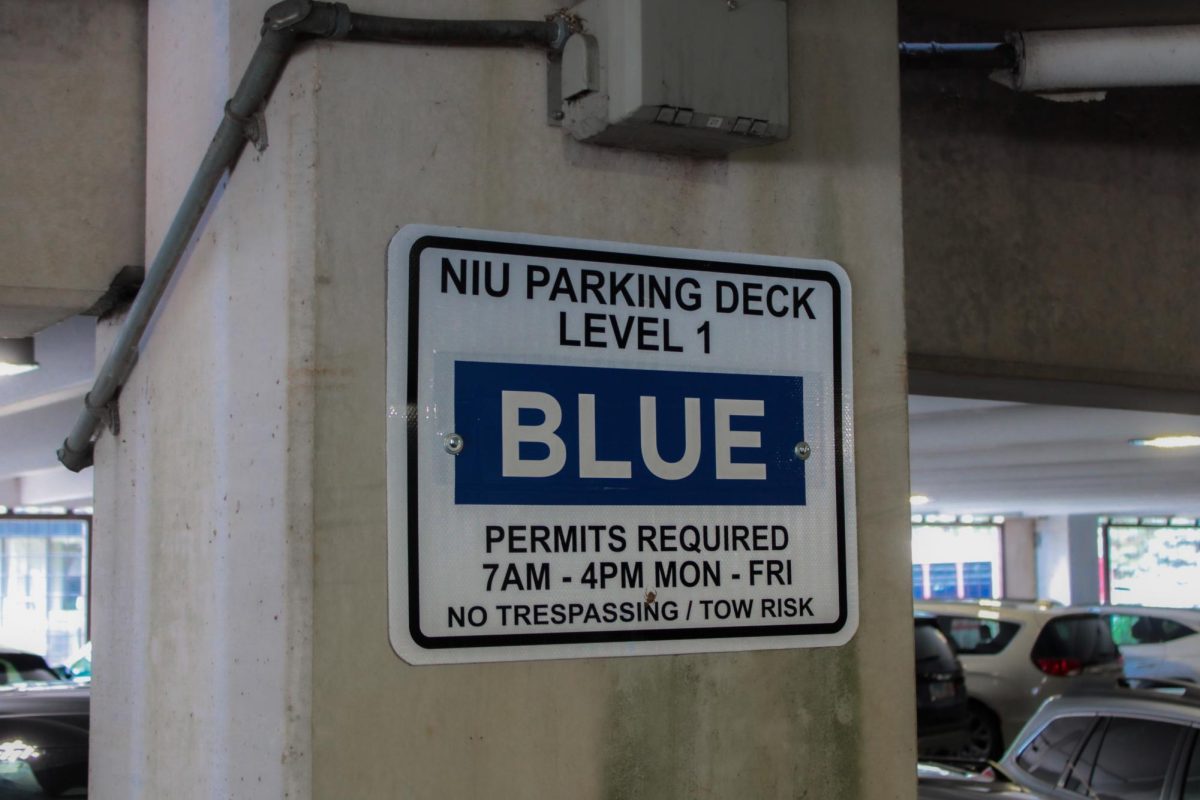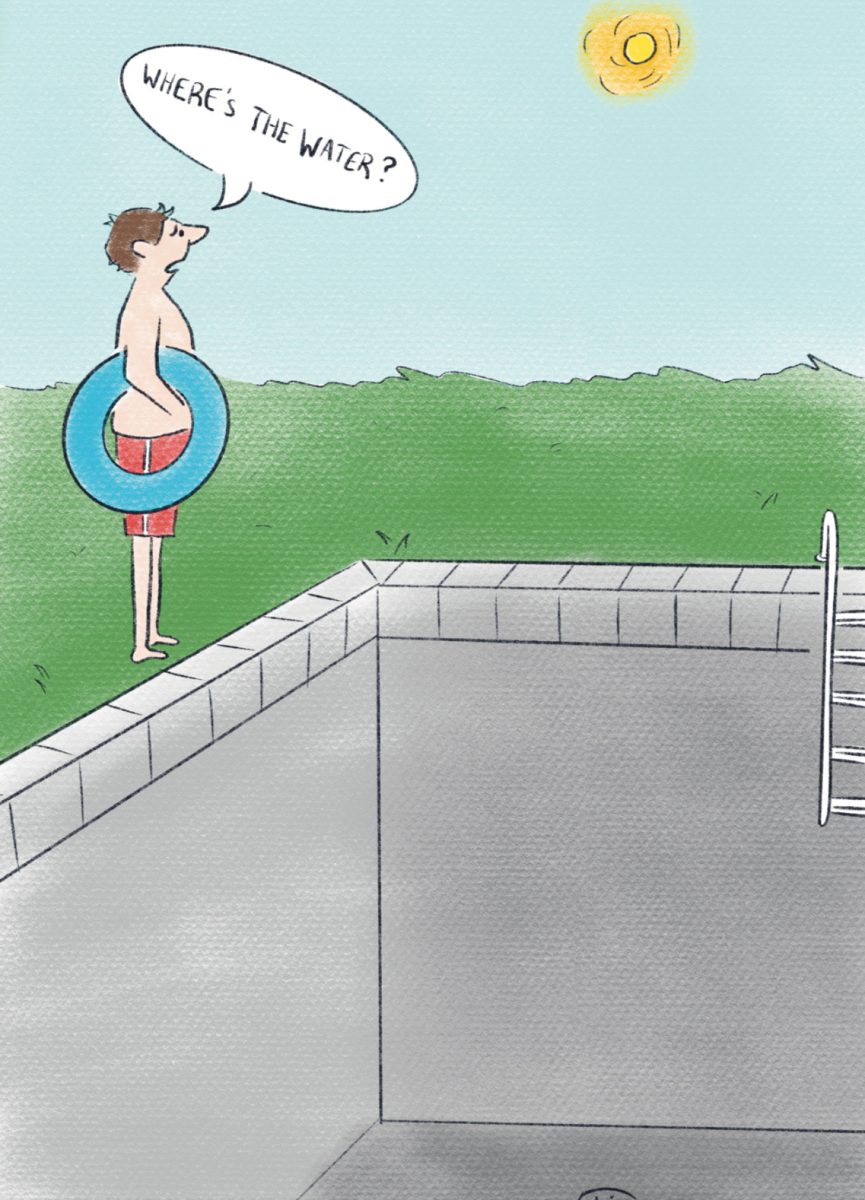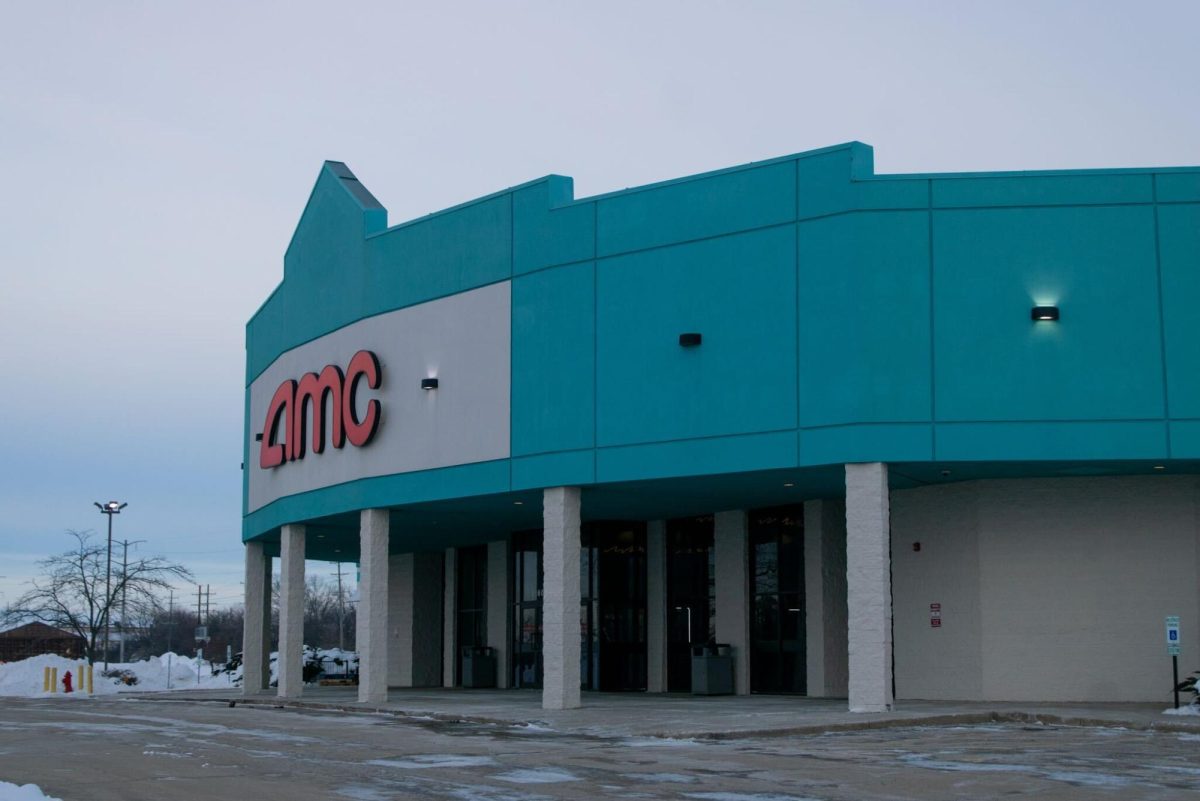The planned roundabout to be installed on the intersection of Lucinda Avenue and Normal Road will make NIU’s campus safer. While this is a good first step, more still needs to be done to ensure pedestrian and driver safety.
The current intersection on Lucinda Avenue and Normal Road is a signalized intersection, meaning the intersection is controlled by timed red, yellow and green lights along with a painted crosswalk and pedestrian crossing signals. The section of Normal Road between LaTourrette Hall and Holmes Student Center was closed in Fall of 2023 for construction.
The roundabout will replace this signalized intersection and replace it with a single lane roundabout, reducing the possible points of collision to just six compared to the previous 24 possible points of collision.
A major issue with the signalized intersection, according to the Federal Highway Administration, is a third of all fatalities occur at all intersections. Furthermore, other than the traffic lights, there are no forms of protection for pedestrians crossing the road besides the driver’s awareness. Also, the cracked roads and lack of tactile paving on the road surface can make it difficult for the visually impaired to cross safely.
Another problem with the current timed lights is that some of the buttons to activate the lights for pedestrians simply do not work. More damningly, there are no spoken phrases such as in downtown DeKalb where every signalized intersection contains a recorded “wait to cross” phrase that is played along with a rapid beeping to help the visually impaired know when to cross.
Kelly Schomer, architect and project manager for NIU’s architectural and engineering services, said the city of DeKalb was installing the roundabout to increase safety for people driving and walking to, from and through campus.
“Roundabouts in general are designed for lower speed driving and makes cars slow down,” Schomer said. “They’re more efficient when traffic flows in one direction.”
According to the Illinois Department of Transportation, roundabouts reduce car-pedestrian crashes by about 30-40%, reduce crashes of all types that result in injury by 76% and can reduce fatal car-to-car crashes by over 90% since they force cars to massively reduce speed before entering and move slowly throughout.
Furthermore, roundabouts are equipped with pedestrian islands, which are raised above the roads, so pedestrians can wait safely rather than crossing all at once or standing in the middle of the road waiting for cars to pass.
The planned roundabout would also be beneficial cost wise for DeKalb as there would be a smaller road surface to pave over. The traffic lights would be eliminated, no longer needing an electrical system to be maintained.
Schomer also mentioned that because roundabouts lack any timed lights, it would prevent drivers from feeling the sudden adrenaline rush and urge to cross the intersection before the light turns red.
A problem that arises when drivers suddenly begin to speed up is the several potholes in Lucina Avenue. The sheer amount and depth of these potholes can cause damage to vehicle suspension while also being unsafe for pedestrians as they can be tripping hazards, especially for the visually impaired or people in wheelchairs.
NIU and the city of DeKalb should have additional ways to improve road safety on campus, such as the implementation of raised crosswalks.
Raised crosswalks work similarly to speed bumps by raising the level of the road for a short section while also allowing for pedestrians to walk across the street without actually stepping onto the roadbed.
Furthermore, the Federal Highway Administration found that raised crosswalks reduce pedestrian-car collisions by 45% as drivers are forced to slow down in order to prevent damage to their vehicles. In addition, raised crosswalks would prevent vehicles from speeding along Lucinda Avenue.
Installing roundabouts and other pedestrian focused infrastructure would make NIU’s campus safer for both students and local residents while also making campus more appealing to prospective students as the center island could house a future garden or appropriate NIU branding while protecting both pedestrians and drivers.




















